With his acclaimed feature film Thunder Road, Cummings chose to self-release it himself despite having other distribution options. On that project he also took on multiple roles, partly due to the tight budget, serving as writer, director, star, editor and even composer.
With his new film The Beta Test, it’s clear Cummings hasn’t swayed in his approach to filmmaking.
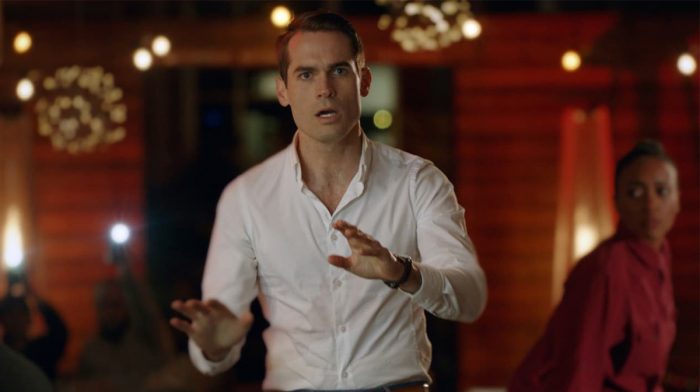
In the movie Cummings takes on something he’s never bowed to – Hollywood. He stars as Jordan, a ruthless talent agent who receives a mysterious invite to a no-strings attached sexual encounter with a stranger in a hotel room.
Driven by curiosity and ego, he impulsively accepts, but that decision sparks the threatening collapse of his superficial world, one crumbling under the weight of his burgeoning lies. Jordan’s story takes us down a rabbit hole which tackles several subjects head on: adultery, consumerism, #MeToo, the Hollywood system and data privacy.
The origins of the film started with the latter, as Cummings and his writing partner PJ McCabe (who also co-directs and stars) revealed to Zavvi. They were fascinated by the conversation surrounding data, driven by the likes of the Cambridge Analytica scandal, and wanted to make a thriller distinctively for the digital generation.

Taking inspiration from 1960s and 70s giallo cinema, alongside a contemporary "David Fincher style", the pair's research into data led them to the idea of The Beta Test's letter service.
Cummings explained: "We wanted to know whether your true soulmate could be found via your online digital footprint. Could that be analytically found through a programme, and if so, is it as real and as feasible when you are stuck in a relationship that doesn't make you as happy as it thought it would?"
The duo started their research into how algorithms pair people, working with a data scientist friend of theirs to create the code. Cummings teases that this code is actually hidden in the movie, an Easter egg in the background of a shot which is briefly brought into focus; as he tells us, if someone wants to take the algorithm, it's there onscreen.
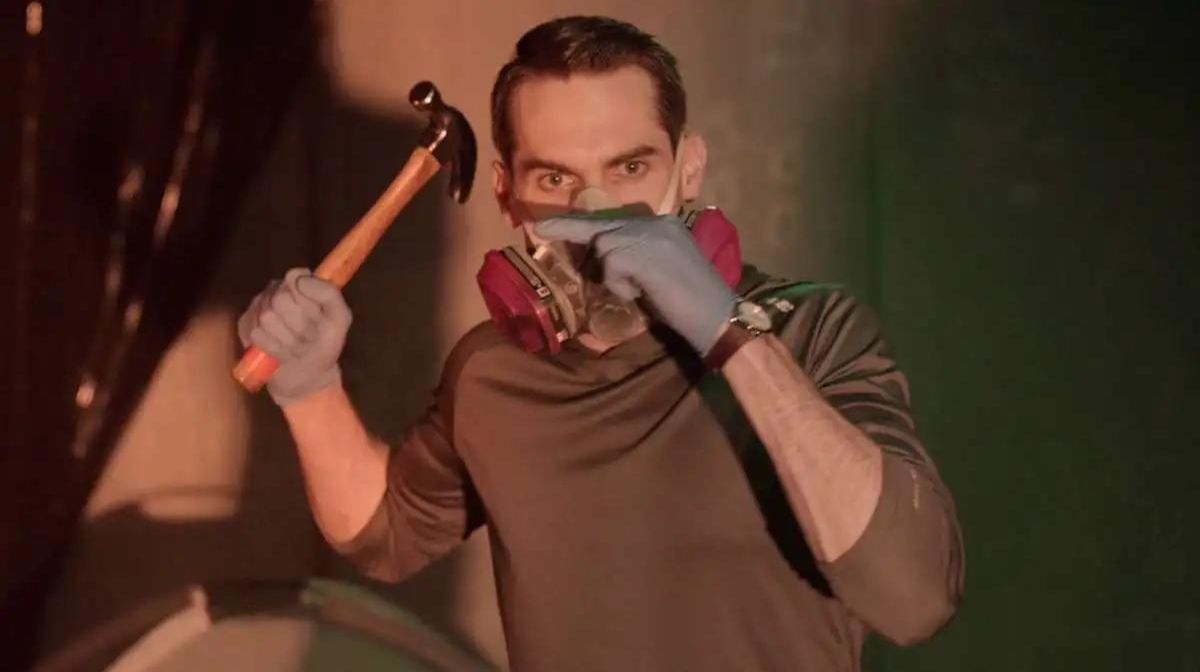
Developing this idea and thinking about the themes of connection and lying led Cummings and McCabe to a group of people they were all too familiar with: Hollywood agents. As Cummings explains, the agency world is like a social network, adding: "if you are going to make a movie about liars and cheaters, there's nowhere better to set it."
Whilst the first draft of the script had the lead character as a talent agent, it didn't take a deep dive into the industry. That changed after friends of the directors read the screenplay, informing the duo that the agency side of the screenplay was interesting and should be explored further, especially in the #MeToo era.
The pair were admittedly hesitant at first given that they both worked in the industry, but soon realised there was no point just scratching the surface, as McCabe explains: "We thought, if we're going to get into trouble, let's see how much trouble we can get into.
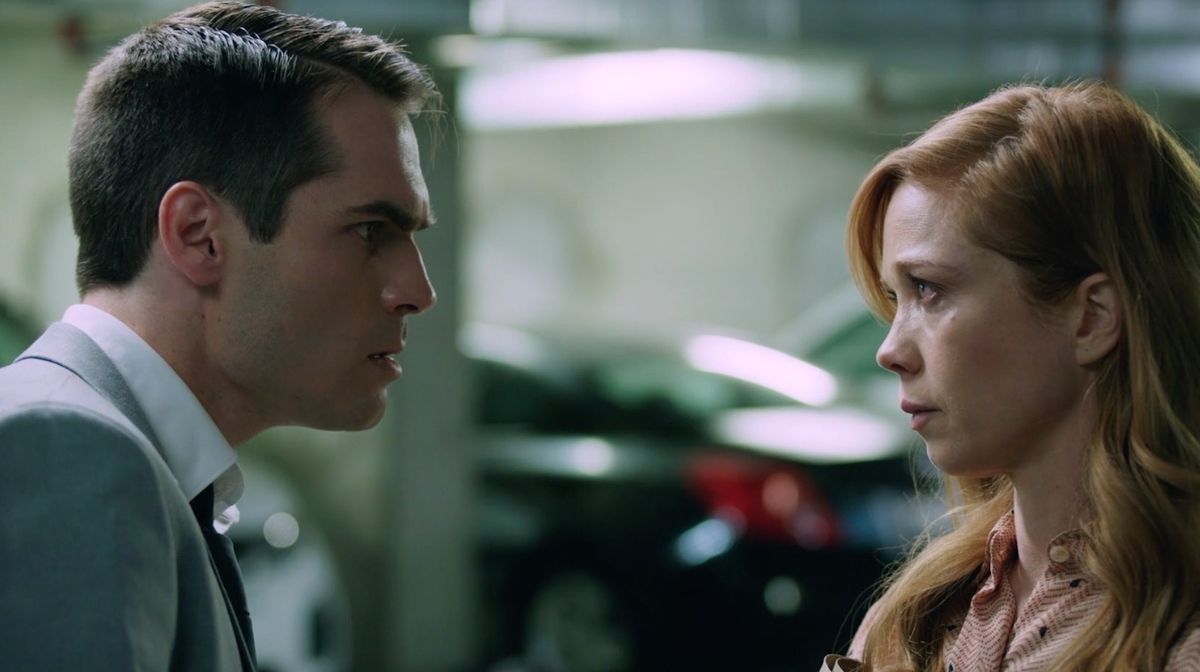
"Also, the movie wouldn't have been as good. If you half-assed it, the story wouldn't be as impactful - we couldn't pull any punches."
Now committed, the pair started their research into the agency world, putting calls out onto social media to see if anybody would be willing to share their experiences. Several people in the industry reached out, with some of the most horrific dialogue in the film taking verbatim from what the directors were told by their sources.
The experiences shocked them, with Cummings pointing out it's especially terrifying because it sounded like nothing had changed: "Even though Harvey Weinstein is in prison, nobody else is, and that system is still flourishing.
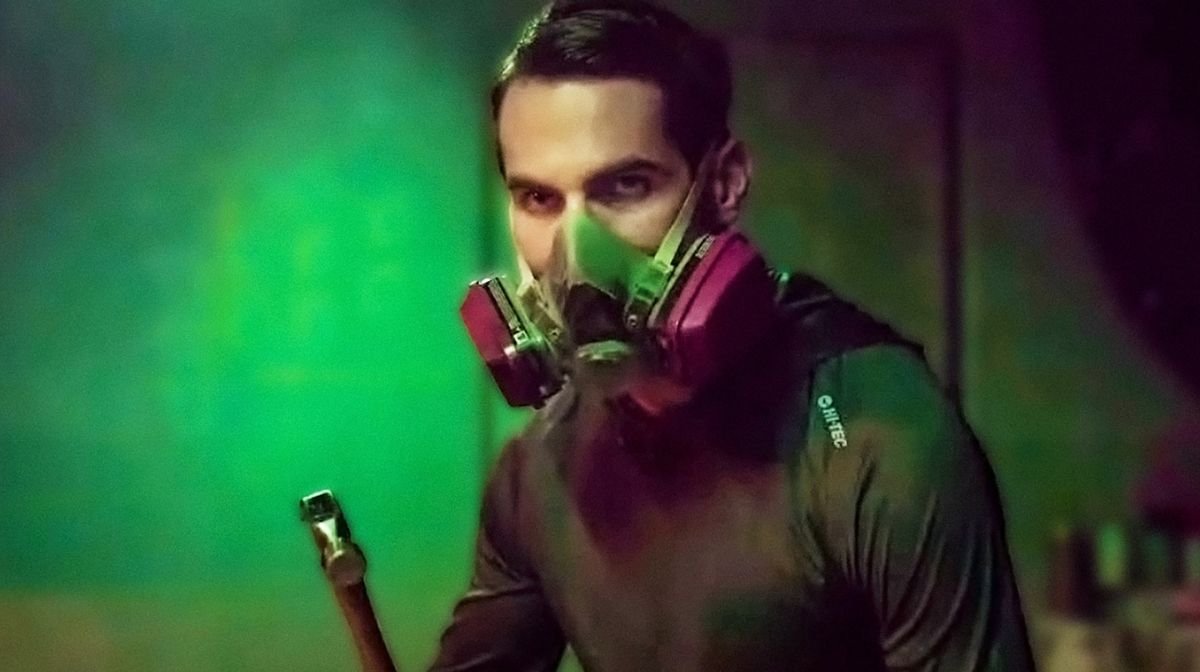
"No one talks about it because of the power dynamics in Hollywood. These people now brag about how they work with women and people of colour, but it's just a PR campaign to make them look good."
Both Cummings and McCabe have always been collaborative in their approach to filmmaking, encouraging anybody who works on the movie to share their ideas. The same was true with The Beta Test, but it became even more important since they were tackling sensitive subject matter whilst fusing several different genres - the balance need to be struck, so feedback was welcomed and listened to.
Cummings also believes having an open editing room has other benefits too: "When I started out in film, I learned so much looking over the filmmaker's shoulder, seeing the creative process. It's a better education than ever going to film school.
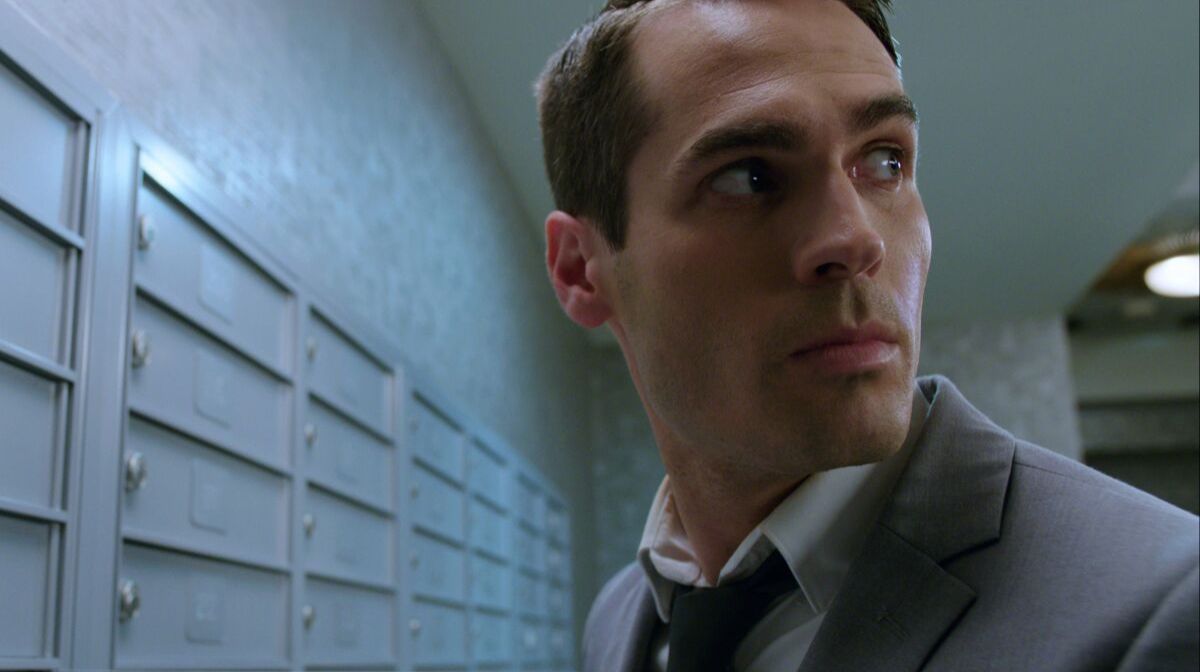
"On sets I've worked on before, it's been incredibly segregated because of the power structures. We didn't want that as we were making this movie all together."
The pair are nervous about showing the film to the world, with McCabe in particular quite "anxious" about the Hollywood reaction.
Cummings is more relaxed though, concluding that they've already impressed the director who helped inspire the movie: "David Fincher liked it, so we don't need to show it to anybody else!"
Shop The Beta Test on Blu-ray from Arrow Video here.This article originally featured in the October 2021 edition of The Lowdown.
For more of the latest pop culture news, interviews and features, follow us on Facebook, Instagram, Twitter and TikTok.








